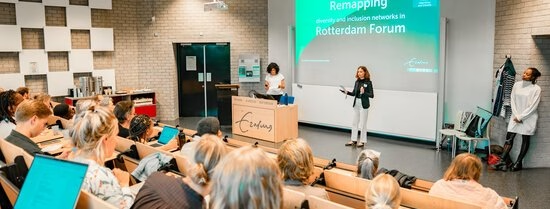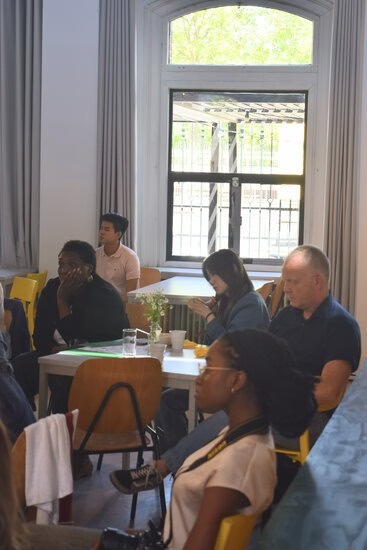How is the field of diversity and inclusion actors in Rotterdam configured today? The main goal of this research programme is to take stock of organizations working on diversity and inclusion in Rotterdam, capture the links between these organizations, and analyze the dynamics of their interactions and relationships.
How do we study?
Local policy-making on diversity and inclusion has significantly changed over the past years. Traditional forms of governmental steering have been complemented with more collaborative policymaking. At the same time, conceptions of societal difference have evolved. New terms have emerged and multiple dimensions of diversity and their interplay are increasingly considered.
This project explores the manifestations of these shifts in the configuration of the local landscape of civil society actors. Methodologically, an integrated mixed methods social network analysis design enables the visualization of different kind of relations as well as an in-depth interpretation informed by actors’ own perspectives.
How does our research make an impact?
The project contributes to theory-building on diversity and inclusion, (urban) governance, urban social movements and the urban civic sphere, but also to policymaking and civil society practices. How can diversity and inclusion work be better delineated? How can (new) collaboration on these topics (among civil society organizations, between civil society organizations and municipality, between civil society organizations and university researchers, and between municipality and university researchers) be stimulated? And how can the university (staff and students) play a role in this?
The project does so by:
- Creating an “Alternative city map of Rotterdam” on diversity and inclusion actors - making existing actors working on diversity and inclusion visible.
Bringing civil society actors and researchers at the university in contact by way of Diversity and Inclusion city tours – to build contacts and connections that allow for potential future collaborations.
Involving Master students in the project through their thesis and recruiting current students and recent graduates as research assistants.
This project is part of the sub-theme Inclusive Cities and Diversity, within the Erasmus Initiative Vital Cities and Citizens (VCC).
Remapping report October 2024
This report summarizes some key take aways from and tools we developed in the project, including a shared database of civil society organizations working on diversity and inclusion in Rotterdam. We hope this may be useful to researchers, civil society organizations, and the municipality and to facilitate collaboration among organizations. The report includes the main insights from our Remapping Rotterdam Forum event, which we hosted on the Erasmus University campus on 21 June 2024.

Download the map and go explore!
(Re)mapping Rotterdam Forum 2024
On 21.06 we welcomed over 60 guests from civil society organizations working on diversity, inclusion, equality and anti-discrimination, as well as researchers dedicated to these issues, to join us on campus for an afternoon of learning and exchange. We explored research findings on relations and power in diversity and inclusion networks in Rotterdam and shared a database of civil society organizations in the city. In addition, we hosted practical workshops about subsidies, (re)mapping and collaboration with researchers. We closed the event with a panel talk sharing perspectives and visions towards new practices of collaborating in Rotterdam. We will share a full report of the event soon!

Networking Tours
What happens when organizations and researchers working on diversity and inclusion in Rotterdam come together? What kind of collaborations would both parties find meaningful and productive? These questions drive Vital Cities and Citizens’ networking tours with diversity and inclusion civil actors in Rotterdam. The second edition of the networking tour took place on June 3 2022 and the third edition on March 31 2023.
Read about the events:
"In search of meaningful collaborations for an inclusive Rotterdam - Networking Tour 2022"
"Exploring collaborations between academia and local civil society - Networking Tour 2023"

Networking Tour 2023

Research team
Dr. Maria Schiller - project leader
Dr. Isabel Awad - project leader
Dayna Lee Stewart - project manager
Nena Ackerl - research assistant






